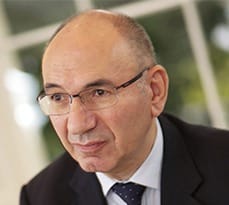
The Financial Economist Roundtable, a group of senior economists including Professor Elroy Dimson of Cambridge Judge Business School, called for a ‘pragmatic approach’ to the issue of corporate tax reform that, while lowering tax rates, removes the deferral option with respect to off-shore profits of US corporations.
The US has a ‘worldwide taxation system’ which imposes taxes on global income after crediting locally paid taxes, while allowing deferral of taxes on money earned outside the US by companies’ foreign subsidiaries until those funds are repatriated to the US.
Some major US companies currently have billions of dollars of such foreign earnings abroad.
While some people have argued for a territorial system that only taxes corporate profits earned within US borders, the Financial Economist Roundtable statement said this would “further strengthen incentives” to move activities to low-tax jurisdiction – “in other words, the worldwide system has benefits that need to be taken into account”.
“We advocate a pragmatic approach to corporate tax reform,” said the statement signed by 30 senior financial economists including Professor Dimson, Chairman of the Newton Centre for Endowment Asset Management at Cambridge Judge. “We recommend considering retention of the US worldwide tax system over its territorial alternative. It can be strengthened by removing the deferral option with respect to offshore profits in combination with lower tax rates. Transfer pricing issues would be easier to deal with than in a territorial system.”


